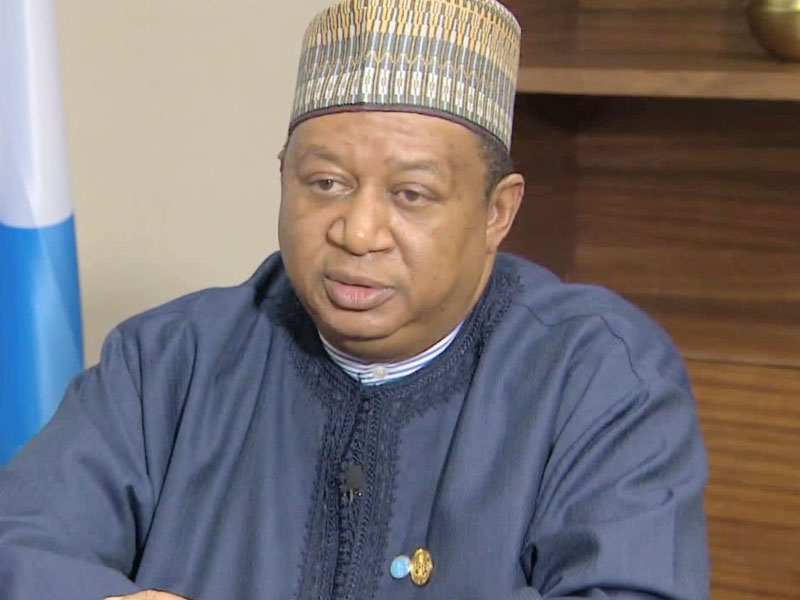Mohammad Sanusi Barkindo 1959-2022
On July 6, 2022, Nigerians woke up to the shocking news of the death of Mohammad Sanusi Barkindo. He died in Abuja, at the age of 63. Until his death, he was the Secretary-General of the Organisation of the Petroleum Exporting Countries (OPEC), headquartered in Vienna, Austria. Founded in 1960, OPEC is an intergovernmental organisation […]

Mohammad Sanusi Barkindo
On July 6, 2022, Nigerians woke up to the shocking news of the death of Mohammad Sanusi Barkindo. He died in Abuja, at the age of 63. Until his death, he was the Secretary-General of the Organisation of the Petroleum Exporting Countries (OPEC), headquartered in Vienna, Austria. Founded in 1960, OPEC is an intergovernmental organisation of 13 countries, which produces about 40 per cent of the world’s oil and accounts for about 75 per cent of the world’s proven oil reserves.
Before his position at OPEC, Barkindo had contributed enormously to national development. He started his career at the Nigerian Mining Corporation in Jos, where he rose to the level of Principal Administrative Officer (1982-85). He was Special Assistant to the Minister of Mines, Power and Steel, Lagos (1984-86); and Special Assistant to the Minister of Petroleum Resources and Head, Office of the Chairman of the NNPC (Nigerian National Petroleum Corporation) Board, Lagos (1986-89). In 1990, Barkindo served on secondment as Special Assistant to the Minister of Foreign Affairs, Lagos. His career at the NNPC started in 1992, as Head of International Investments, until 2010, when he left the organisation after having served as Group Managing Director/CEO. Conventionally, the NNPC had been led by people with technical/scientific backgrounds. Barkindo was arguably the first to lead the NNPC without a technical/scientific background. During his time at the NNPC, Barkindo served the organisation in various capacities including being President of Duke Oil; General Manager, NNPC London Office (1993-97); Deputy Managing Director/CEO, Nigerian Liquified Natural Gas (2005); etc. Barkindo also served on several Boards of NNPC investee companies, such as banks, oil service companies, international trading companies, etc.
- Kano govt clears controversies over Hawan Nasarawa procession
- Africa’s illicit financial flows now $80bn – CDD
It is important to note that Barkindo held several positions within OPEC before he served as its Secretary General. He was a Nigerian Delegate to OPEC Ministerial Conferences (1986-2010); served as Nigeria’s National Representative on OPEC’s Economic Commission Board (1993-2008); served as Acting OPEC Secretary General (January-December 2006); Nigeria’s Governor for OPEC (2009-10); and served as Ad hoc OPEC Governor at various times. Barkindo was also involved in other OPEC activities including being Chairman of the OPEC Task Force of the 15th Session of the United Nations Commission on Sustainable Development (UNCSD); spearheaded OPEC/European Union dialogue on Energy Markets, Taxation and Environment; was an architect of the first Long Term Strategy at OPEC; Founder delegate to the formation of the African Petroleum Producers Association (APPA), in Algeria (1986) and Delegate to the APPA Ministerial Conferences (1987-2010); and Pioneer Member of the International Energy Forum (IEF), Saudi Arabia, where he helped strengthen and consolidate OPEC/non-OPEC cooperation and dialogue.
Barkindo came into the OPEC as its Secretary General at a time which coincided with the 2014-17 oil glut. This was a period of excessive oversupply when OPEC member countries steadily surpassed their production targets. As a result of the improvement in shale fracking technology in the United States, oil production nearly doubled from 2008 levels, approaching volumes of Saudi Arabia and Russia. These developments instigated a fall in US oil import supplies, and a downfall in global oil prices. To get rid of the supply glut, perhaps Barkindo’s most profound achievement was the formation of OPEC+ in late 2016. The OPEC+ includes all 13 member countries of OPEC plus 10 non-OPEC countries, wherein the latter group includes Russia as one of the world’s top oil exporters. As an alliance group, the OPEC+ member countries collectively agree on how much oil to produce, which directly influences oil supply in the global market at any given time, while tending to maximise profitability.
Another area in which Barkindo played a significant role is in contributions to climate change. He led Nigeria’s technical delegations to the climate change negotiations since their inception in 1991 that produced the United Nations Framework Convention on Climate Change (UNFCCC) and the Kyoto Protocol to the UNFCCC. He was the only Nigerian delegate to attend 15 Conferences of the Parties to the UNFCCC from COP1 in Berlin, Germany (1995) to COP15 in Copenhagen, Denmark (2009). In 2002, Barkindo served as Coordinator of the Group of 77 and China at the UNFCCC. He was elected Vice President of the Conference of the Parties at COP13 in Bali, Indonesia (2007).
Barkindo’s passing is a great loss to his country Nigeria, the global oil industry, and the international community, all of which he served with sincerity and diligence. His dedication to the service of humanity is highly admirable and he will be remembered for many years to come.
Barkindo was born on April 20th, 1959 in Yola, Nigeria. He earned a BSc degree in Political Science from Ahmadu Bello University (1981); Post Graduate Diploma in Petroleum Economics from the University of Oxford, United Kingdom (1988); MBA in Finance and Banking from Washington University, United States (1991). He was a Fellow at George Mason University, United States, where he undertook research in energy, climate change and sustainable development. Barkindo was a recipient of an Honorary Doctor of Science degree from the Modibbo Adama University of Technology, Yola. He was married with children. We at Daily Trust newspaper mourn his death and pray for Almighty Allah to grant him Aljannat Firdaus.
